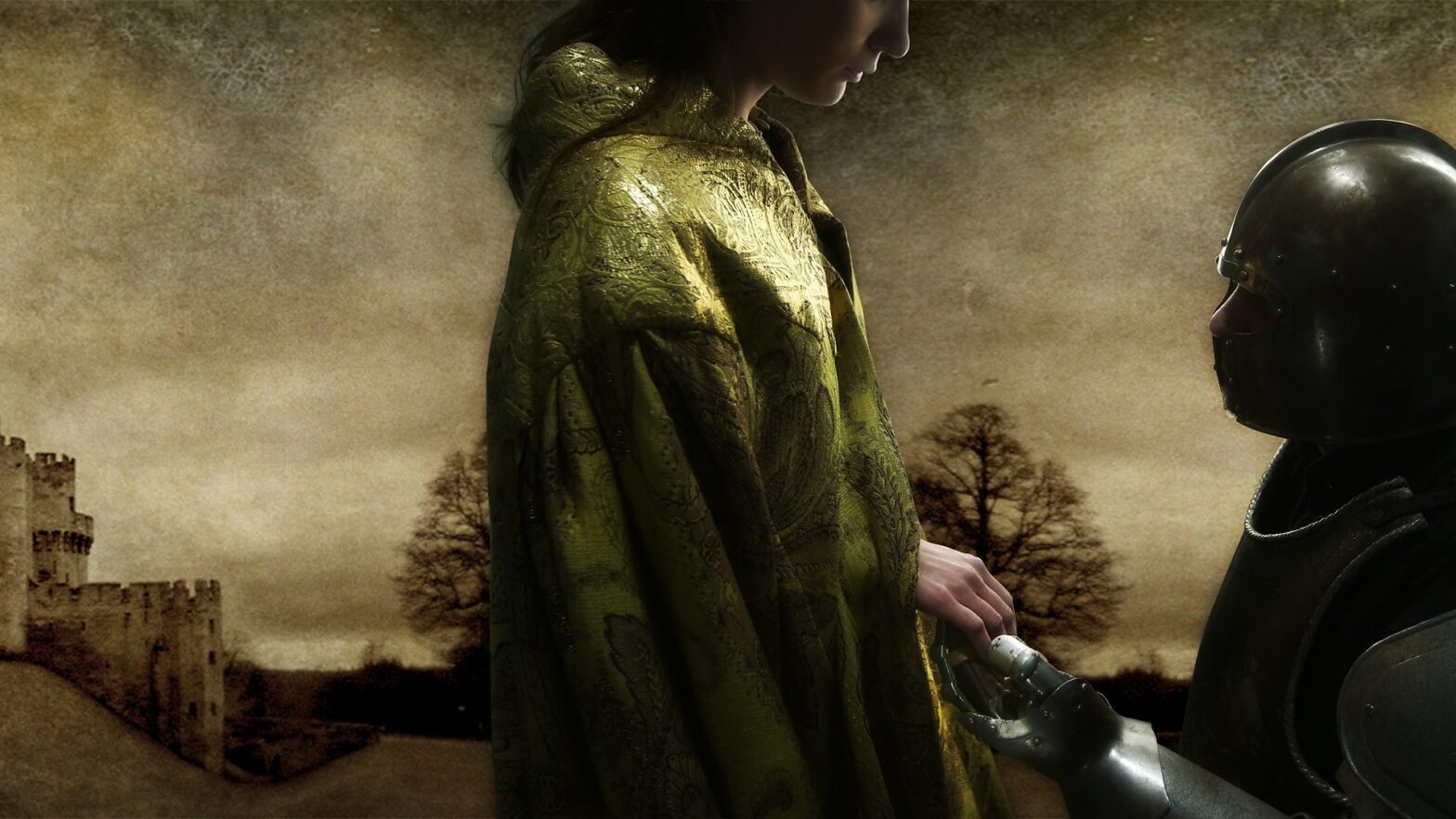Enter Mordred.
For the first four hours of Brian Sibley’s adaptation of T.H. White’s The Once and Future King, Mordred, Arthur’s bastard and incestuous son, has loomed over the proceedings as, on the night before the battle of Camlann, Arthur reminisces with Merlyn about his reign. He has always been an off-stage presence while Arthur frets about the coming battle against his son on the Salisbury Plain, and at last in “The Lengthening Shadow,” the penultimate chapter of the adaptation, Mordred enters the drama.
Mordred, an albino hunchback with a powerful intellect and a forceful personality, arrives in Camelot at a time when the idealism of Arthur’s youth has given way to the settling and failures of middle-age. Lancelot has been banished from court, knights are plotting murder and revenge, the light of Guenever’s happiness has dimmed, and Arthur seeks a new purpose for the Round Table beyond the worldly. The peace of Arthur’s kingdom rests on secrets, acknowledged or not, and their exposure by Mordred will tear the kingdom apart.
I find it difficult to offer much insight into “The Lengthening Shadow.” Thinking through the arc of The Once and Future King, I thought this was likely to be the problematic episode due to the period of time — some twenty years — that it had to cover. Drawn largely from the second half of The Ill-Made Knight, the third book in White’s quadrilogy, we move from Galahad as an infant at the beginning to glancing over the Grail quest at the end. Lacking some of the focus of previous episodes, we have a succession of incidents that illustrate the failing of the Round Table and move the characters and narrative pieces into place for the finale. Also, the framing device — Arthur and Merlyn in the king’s camp — isn’t utilized to the extent that it was in previous episodes, depriving the episode of the element that I’ve really enjoyed, the rapport between Paul Ready’s Arthur and David Warner’s Merlyn.
However, the episode does give us a wealth of strong scenes between Ready, Lyndsey Marshal’s Guenever, and Alex Waldmann’s Lancelot. One particularly powerful scene comes near the beginning when Guenever banishes Lancelot from court, and Marshal conjures up the fury of a queen scorned. There are also two conversations about the Holy Grail, and in those scenes, Ready, Marshal, and Waldmann convey three characters who have known each other for years and have an easy rapport with one another. Also of note is a strong scene between Waldmann and Paul Heath (as Sir Kay) in which they discuss the relationship between Lancelot and the Queen.
The reintroduction of the Orkney clan — the children of King Lot and Queen Morgawse: Gawaine, Agravaine, and Gareth — is necessary and welcome, since they play an important role in the end of Arthur’s kingdom, but the scene that reintroduces them — a parley at Lancelot’s castle, Joyous Gard — has the unfortunate problem of not identifying them in the conversation. The final scene of the episode features them prominently, and on a second listen I was able to finally discern them through their thick Scottish accents. (Here’s a clue — Agravaine has the deeper voice, Gareth has the higher pitched voice, and Gawaine falls in the middle.)
I’ve been thinking about how I want The Once and Future King to end, because there are two ways it can end. It could end, as my one-volume hardcover ends, with Arthur leaving his camp on the morning of the battle, hopeful and ready to face the future. Or it could end, as The Book of Merlyn ends, after the Battle of Camlann (which, except for how it starts, T.H. White doesn’t describe) with Arthur and Mordred dead, Guenever in a convent, and Lancelot in a monastery.
I can justify either ending. I know which one I would prefer. I want the one-volume ending.
As much as I would like the Merlyn ending — Arthur and Mordred settling their differences and making peace, until an accident triggers a battle that neither man truly wants — the one-volume ending is, I think, the sadder — and more powerful — ending. We know how Arthur’s story ends, thanks to tellings and retellings of this tale. We know he won’t survive the battle, but that’s not the important part. The important part — and Merlyn’s final lesson — is this: Arthur has done all that he can and, more importantly, he has made peace with himself, and so he marches off to his destiny, content. He did the best he could to make the world a better place, and though the Round Table is “broken,” as Arthur says at the end of this episode, the dream will live on. I want that final conversation between Arthur and the page from Warwickshire. Yes, that’s how I want it to end.
Though the final episode, “The Candle in the Wind,” aired yesterday in Britain, I probably won’t listen to it for a few days yet. I don’t want this to end, not just yet. This has been something special and immensely enjoyable, and I’ll be sad when it’s done.
Previous posts on The Once and Future King:

Thank you again, Allyn Gibson, for another perceptive appreciation of the challenges involved in tackling White’s sprawling saga…
I was intrigued to read your thoughts on how, maybe, the series ‘ought’ to end! From the outset I wrestled with the two possible conclusions offered by ‘TO&FK’ and ‘The Book of Merlyn’. I hope you will think I made the right decision…